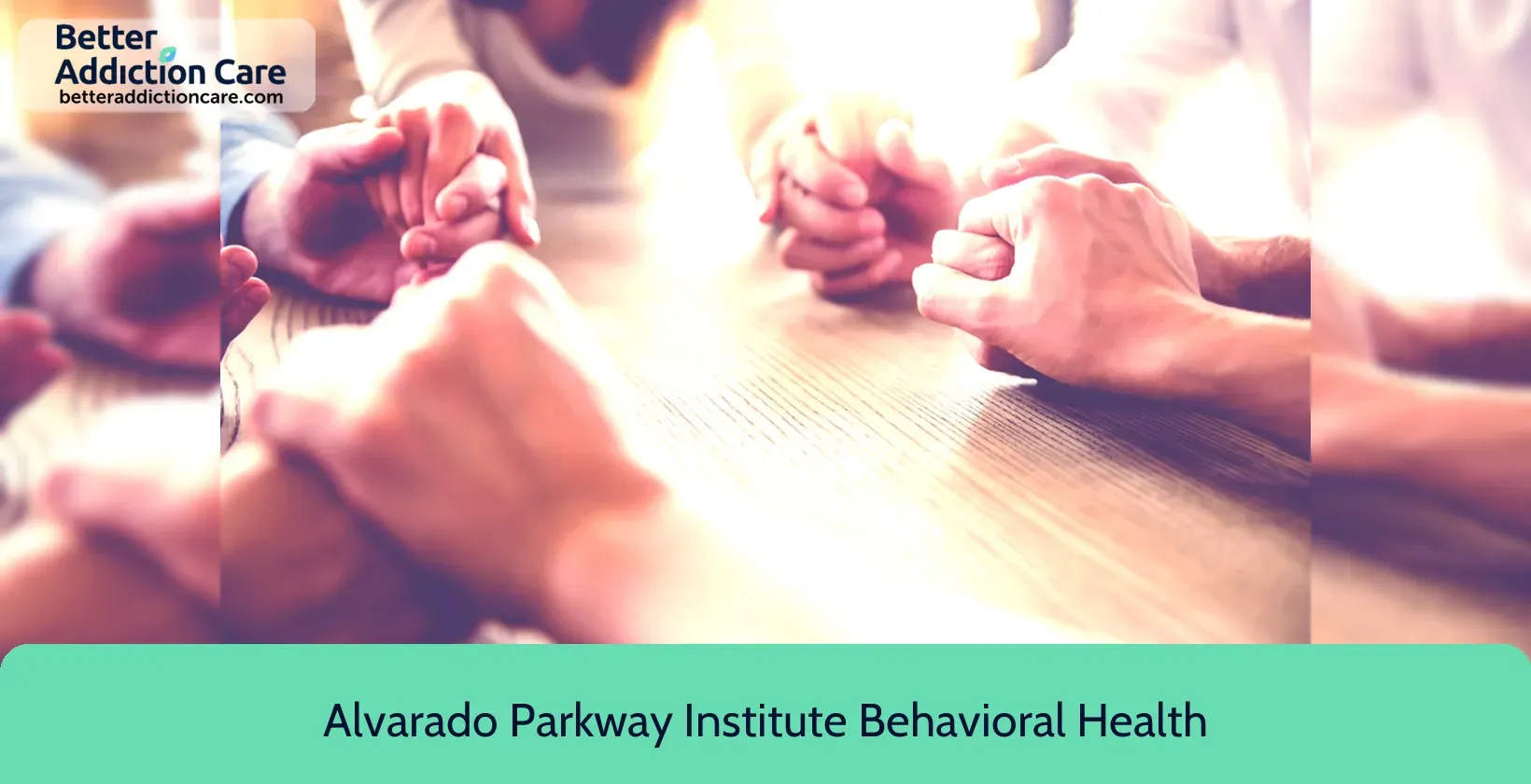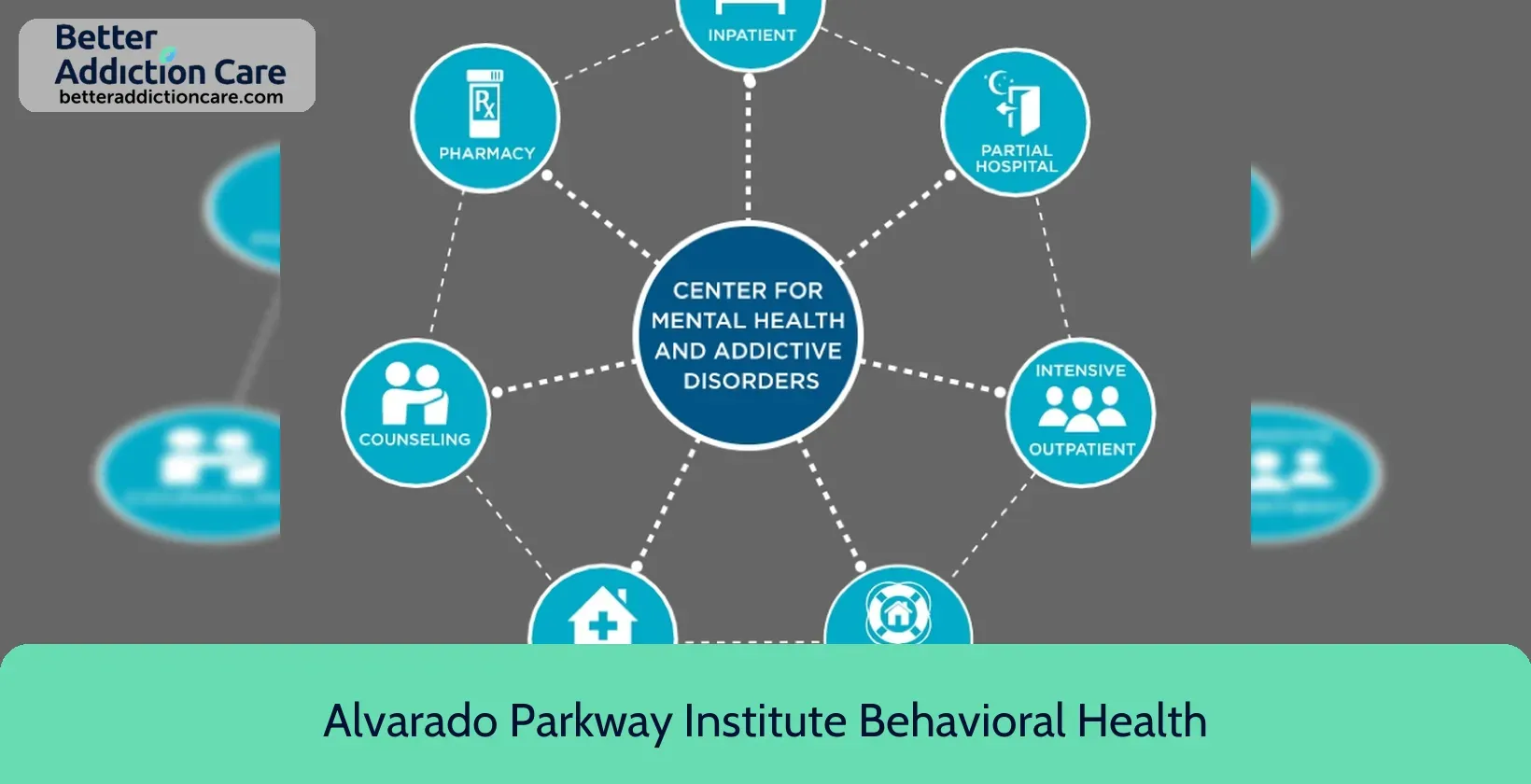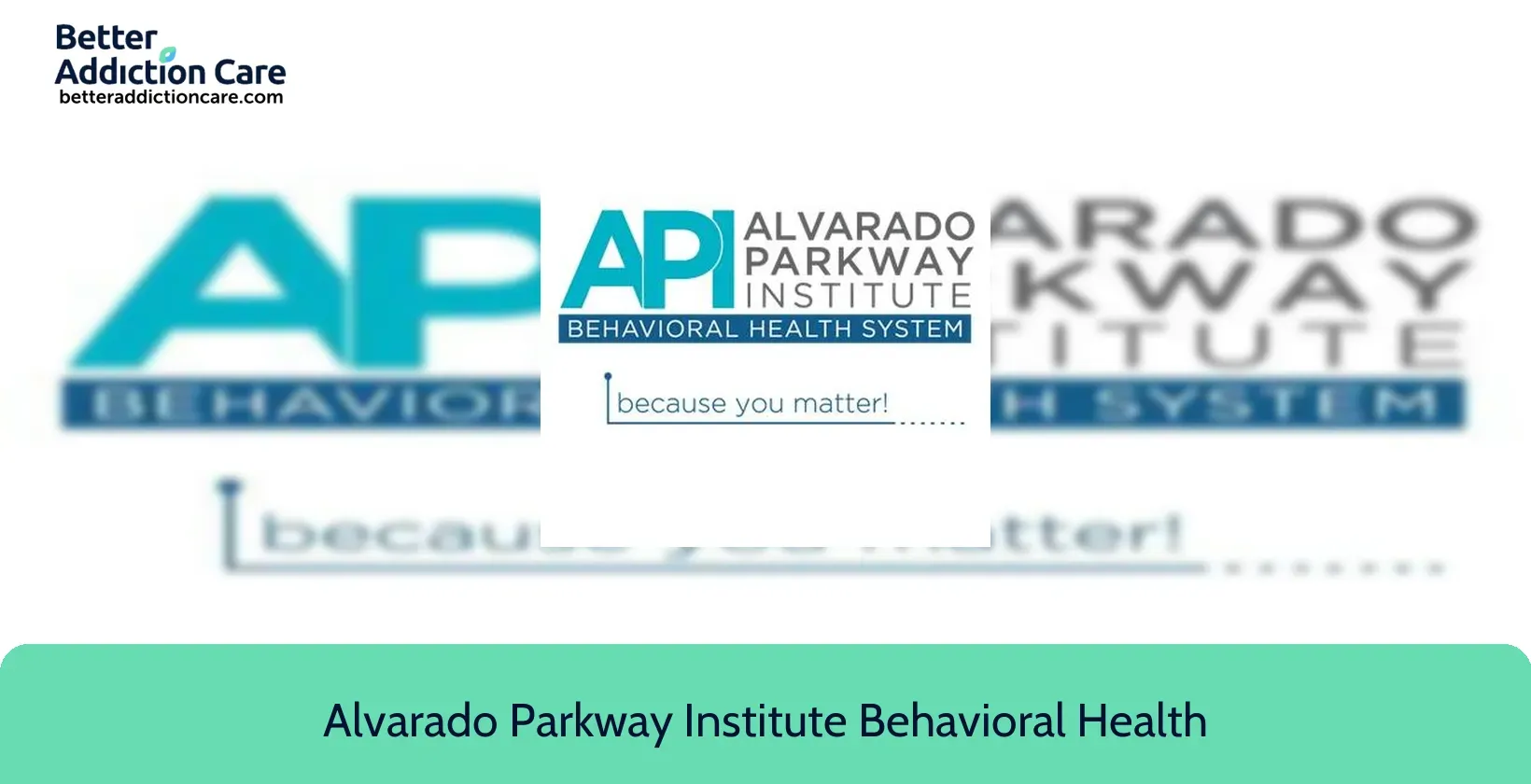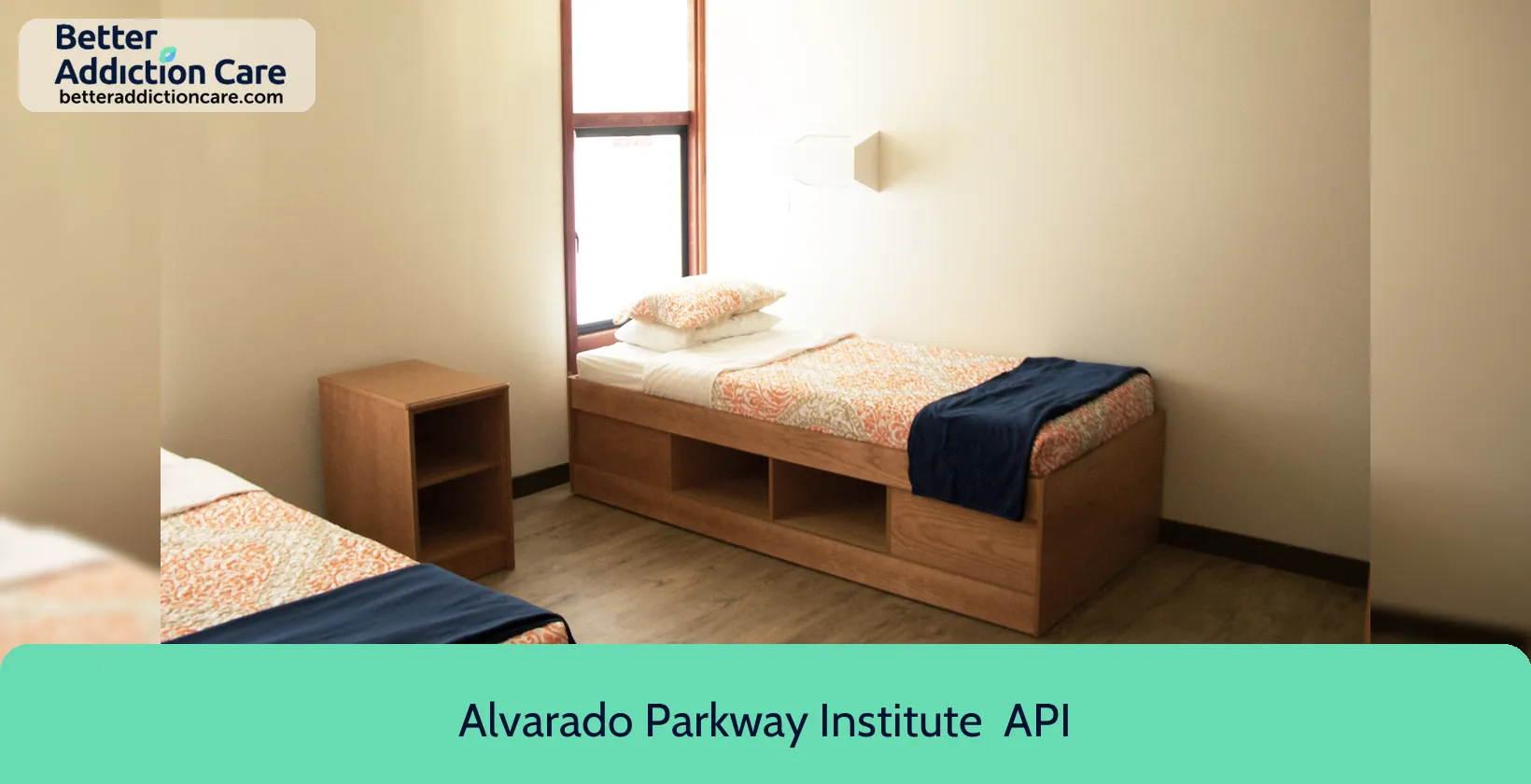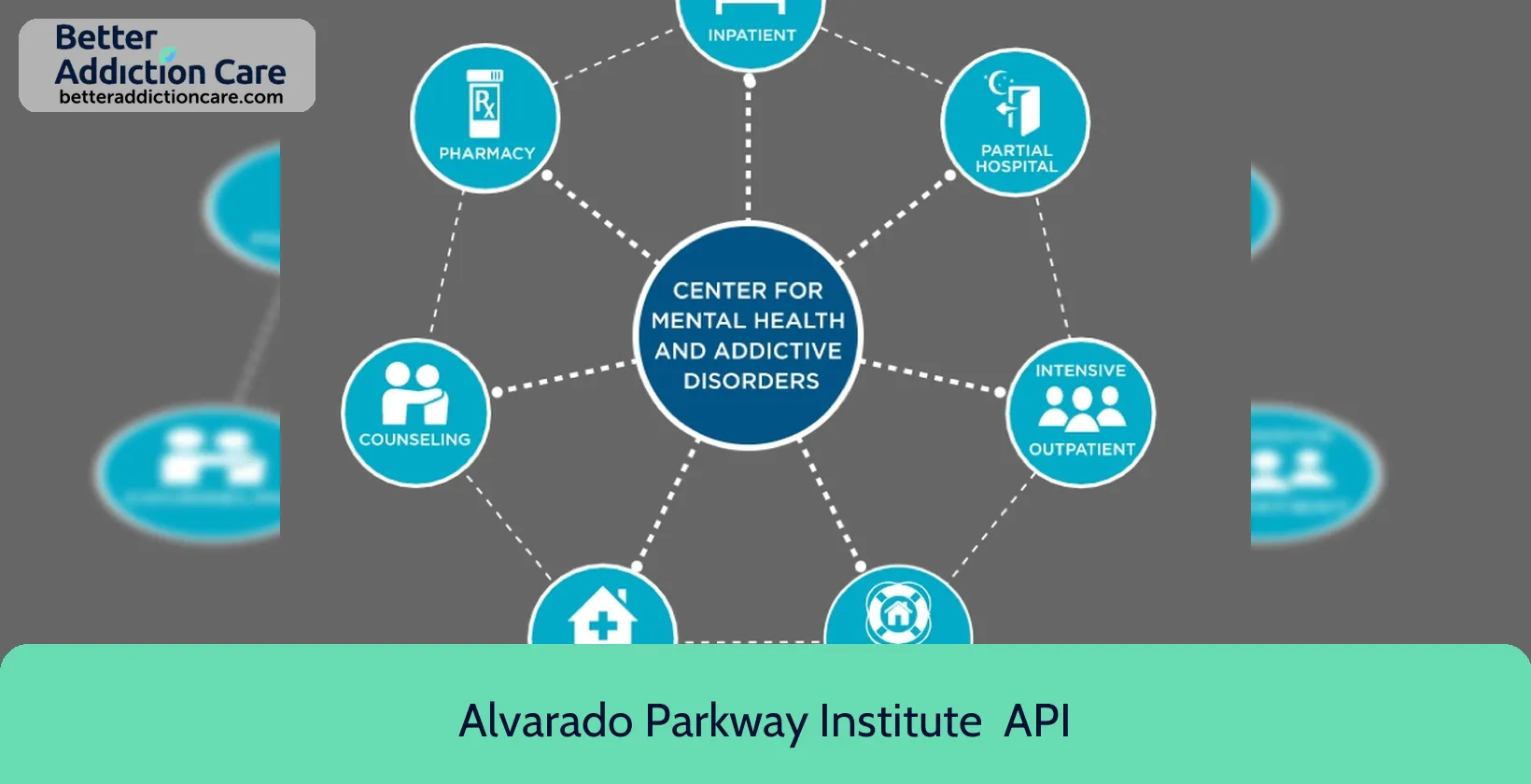Alvarado Parkway Institute Behavioral Health System Outpatient Services
Overview
Alvarado Parkway Institute Behavioral Health System Outpatient Services is an accredited substance abuse treatment center that provides outpatient detoxification, for men and women from 18+ years of age. As part of their special programs, Alvarado Parkway Institute Behavioral Health System Outpatient Services treats clients who have experienced trauma. To help patients achieve sobriety, Alvarado Parkway Institute Behavioral Health System Outpatient Services provides intake assessments. Afterward, patients receive family counseling, individual psychotherapy, and cognitive behavioral therapy during treatment. Alvarado Parkway Institute Behavioral Health System Outpatient Services is located in San Diego, California, providing treatment for people in San Diego County, accepting private health insurance, cash or self-payment, and medicare.
Alvarado Parkway Institute Behavioral Health System Outpatient Services at a Glance
Payment Options
- Private health insurance
- Cash or self-payment
- Medicare
- Medicaid
- Aetna
Assessments
- Comprehensive mental health assessment
- Comprehensive substance use assessment
Age Groups
- Adults
- Young adults
Operation
- Private for-profit organization
Highlights About Alvarado Parkway Institute Behavioral Health System Outpatient Services
6.74/10
With an overall rating of 6.74/10, this facility has following balanced range of services. Alcohol Rehabilitation: 8.00/10, Drug Rehab and Detox: 6.00/10, Insurance and Payments: 6.00/10, Treatment Options: 6.97/10.-
Alcohol Rehabilitation 8.00
-
Treatment Options 6.97
-
Drug Rehab and Detox 6.00
-
Insurance and Payments 6.00
Accreditations
The Joint Commission:

The Joint Commission's addiction and behavioral health accreditation signifies a facility's commitment to high-quality care. It involves rigorous evaluations and assessments of clinical practices, ensuring effective, evidence-based treatment. Accreditation showcases a dedication to continuous improvement and patient safety, instilling trust among patients, families, and healthcare professionals. It's a mark of excellence in addiction and behavioral health care.
Treatment At Alvarado Parkway Institute Behavioral Health System Outpatient Services
Treatment Conditions
- Mental health treatment
- Alcoholism
- Opioid Addiction
- Substance use treatment
- Co-occurring Disorders
Care Levels
- Intensive outpatient treatment
- Detoxification
- Aftercare
- Outpatient
Treatment Modalities
- Family counseling
- Individual psychotherapy
- Cognitive Behavioral Therapy
- Dialectical Behavior Therapy
- Group counseling
Ancillary Services
Languages
- Spanish
Special Programs
- Clients who have experienced trauma

Additional Locations
Get Help Now
Common Questions About Alvarado Parkway Institute Behavioral Health System Outpatient Services
Contact Information
Other Facilities in San Diego

6.59

6.74

6.74

7.02

6.96

6.83

6.76

7.34
DISCLAIMER: The facility name, logo and brand are the property and registered trademarks of ABC Sober Living - Soledad House, and are being used for identification and informational purposes only. Use of these names, logos and brands shall not imply endorsement. BetterAddictionCare.com is not affiliated with or sponsored by ABC Sober Living - Soledad House.
